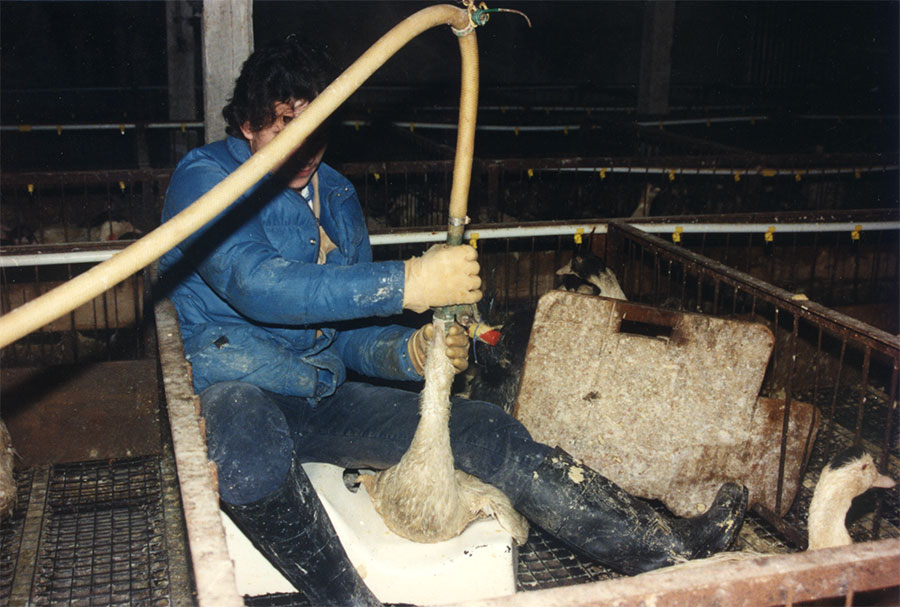United Poultry Concerns Protests
“A Defense of Foie Gras”

--UPC President Karen Davis, Baltimore City Paper, (Maryland) March 12, 2008
An article in the Baltimore City Paper on Feb. 27 defended the production and consumption of foie gras: “I’ve concluded that the quality of life of ducks raised in the U.S. for foie gras far exceeds that of commercial livestock” (http://www.citypaper.com/eat/story.asp?id=15342). UPC president Karen Davis wrote the following letter published on March 12. http://www.citypaper.com/news/story.asp?id=15439

Donald Duck & Arnold Duck, rescued from Hudson Valley Foie Gras, join White Pekin duck, Terrain, at UPC.
Foie Gross
In “Live and Let Liver” (Feb. 27), Henry Hong falsely compares the experience of force feeding forcibly confined ducks and geese to enlarge their livers for human consumption with wild birds’ consumption of extra-large quantities of food to prepare themselves for a long migration. However, in the case of a long migration, the food is converted to energy, whereas force-fed birds with restricted movement do not turn the food into energy but into sickly fat – a disease condition known medically as hepatic lipidosis.
Faced with bad publicity, Hudson Valley Foie Gras, in upstate New York, began staging pre-arranged tours in 2004 – hiding and culling visibly sick birds, throwing down fresh sawdust, and so on, to feed willing visitors’ fantasies of humane treatment in conformity with false advertising.
Regardless, force feeding an animal, not for medicinal purposes, but to please a palate, does not meet ethical standards, while to invoke the cruelty inflicted on chickens in order to deflect attention from the cruelty inflicted on waterfowl to produce foie gras is rather like comparing a rape to, say, a beating – which is worse?
For seven years, we have had two male ducks rescued from Hudson Valley at our sanctuary on the Virginia Eastern Shore. They are now very different birds from their former selves, and while they now are friendly, talkative, lively and active, and spend happy hours splashing in their pool and padding about the yard, they do not want to be touched by human hands.
As for Mr. Hong’s claim of “extensive inquiry” into the treatment of animals raised and slaughtered for food, well, maybe here, too, in my opinion, his standards are flexible. – Karen Davis